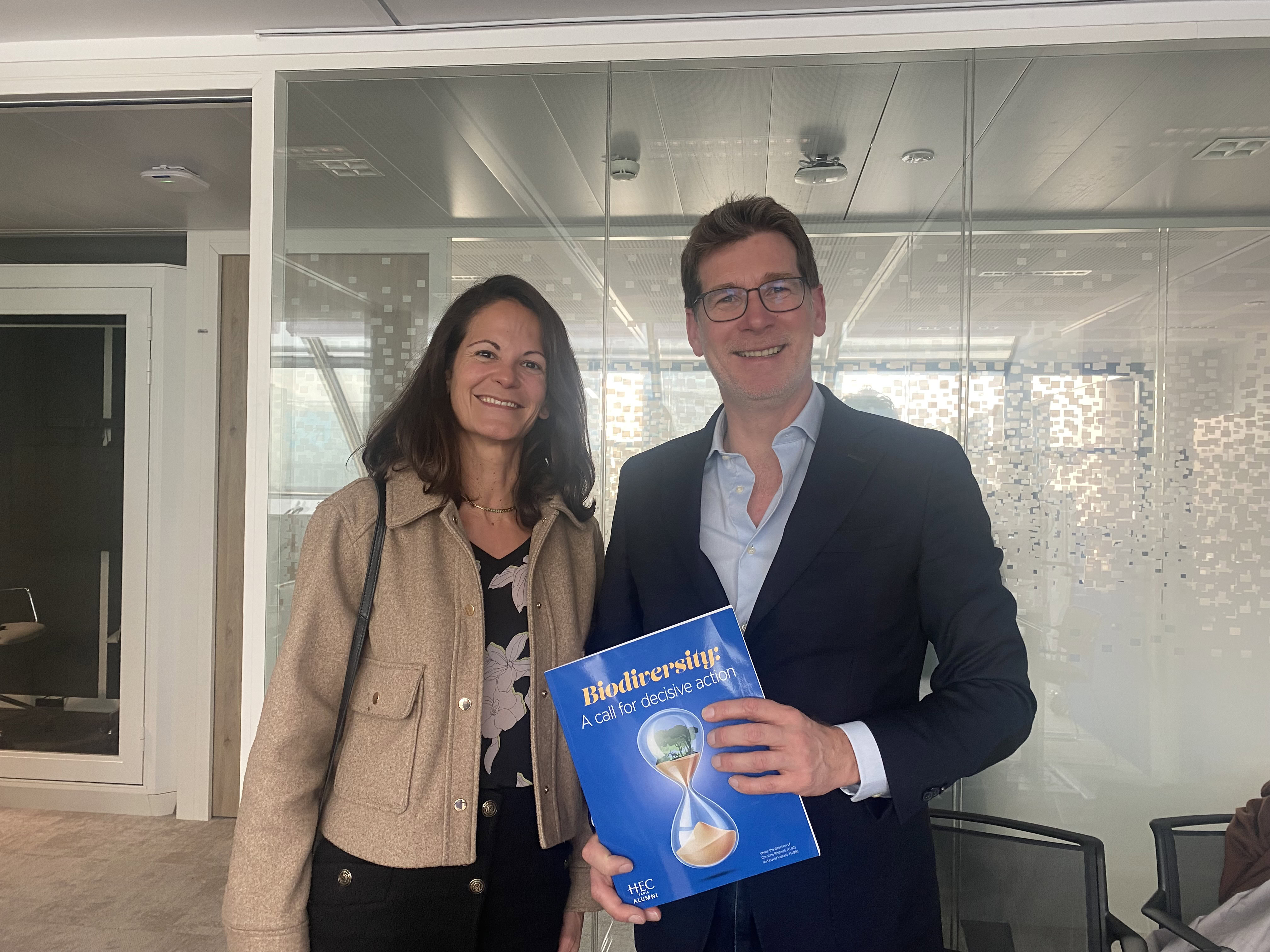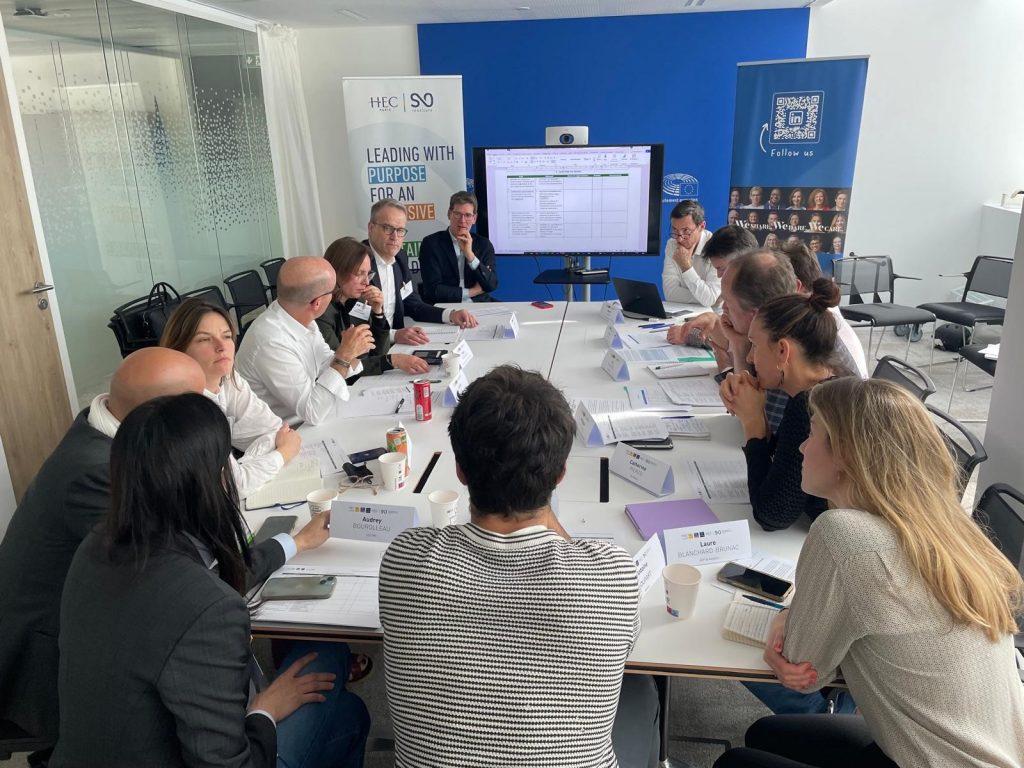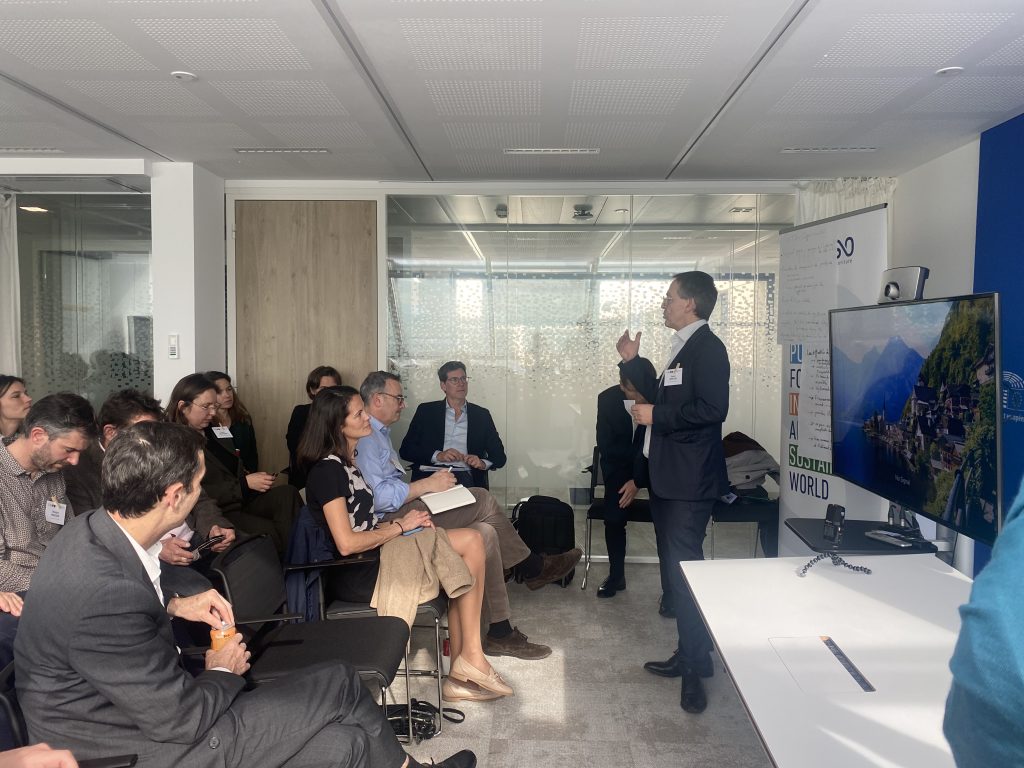Agri-agro : how to promote the ecological transition ?

In keeping with its mission to make an impact, HEC Paris and the Agri-food, Transition and Entrepreneurs clubs of the HEC Alumni Association rallied together on 29 April for the Environment Committee at the European Parliament, bringing together professionals from across the agri-agri value chain to reflect on the complex subject of ecological transition in this sector.
A crucial issue
Since the post-war period, European agriculture has undergone profound changes which, while securing food production, have also contributed significantly to greenhouse gas emissions. Accounting for 12% of the European Union’s total emissions, the sector now has an obligation to react to the acceleration of climate change, especially as it has made no progress in reducing its emissions since 2012, according to Eurostat data, while Europe is aiming for an overall 55% reduction in emissions by 2030.
The European Union has a number of tools at its disposal for reorienting the agricultural and agri-food system, including the CAP (the Common Agricultural Policy for all EU Member States), and legislative packages such as the Green Deal (a set of policy initiatives proposed by the European Commission with the overarching aim of making Europe climate neutral by 2050).
The two round-table discussions on 29 April brought together more than 40 participants: entrepreneurs, farmers, cooperatives and sector managers, researchers and experts, academics and manufacturers, etc., to highlight the difficulties experienced on the ground and enable public policies for transition to work more effectively.
Diversity of players in the sector and fruitful dialogue
Pascal Canfin, Chairman of the European Parliament’s Environment Committee, was one of the initiators of the day’s events and felt that it was ‘crucial to include all stakeholders in the discussions on agricultural transition policies to ensure that they are implemented realistically’. The HEC Alumni Association’s Agri-food, Transition and Entrepreneurs clubs have proved their ability to bring together all the players in a sector and get them talking in a peaceful manner about a subject as complex and polarised as agriculture. In fact, they made it possible for the forty or so professionals from the sector to meet and discuss their points of view and move forward together around two themes defined in advance by the day’s organisers.
Two clear themes for effective progress
This joint brainstorming enabled us to find focal points and highlight cross-cutting issues. Two issues were proposed: firstly, the extension of the ETS carbon market to the agri-agricultural sector.
2005 aims to impose an emissions cap on the EU’s high-emission sectors), and secondly, derisking tools – in the sense of tools for financing projects, assessing and assuming risks and supporting the transition of the agri-agro sector.
Organised around two tables and two separate groups, the two issues gave everyone an opportunity to express their views, with a view to providing MEPs with material for the European Commission’s #Greendeal 2 guidelines.
Pascal Canfin was delighted to hear the views of this ‘fine diversity of players from across the value chain, who can help to advance agro-ecology by working together and putting forward their suggestions on key public policy issues’.
Juliette Le Lorier
- François Gemenne
Published by La rédaction




